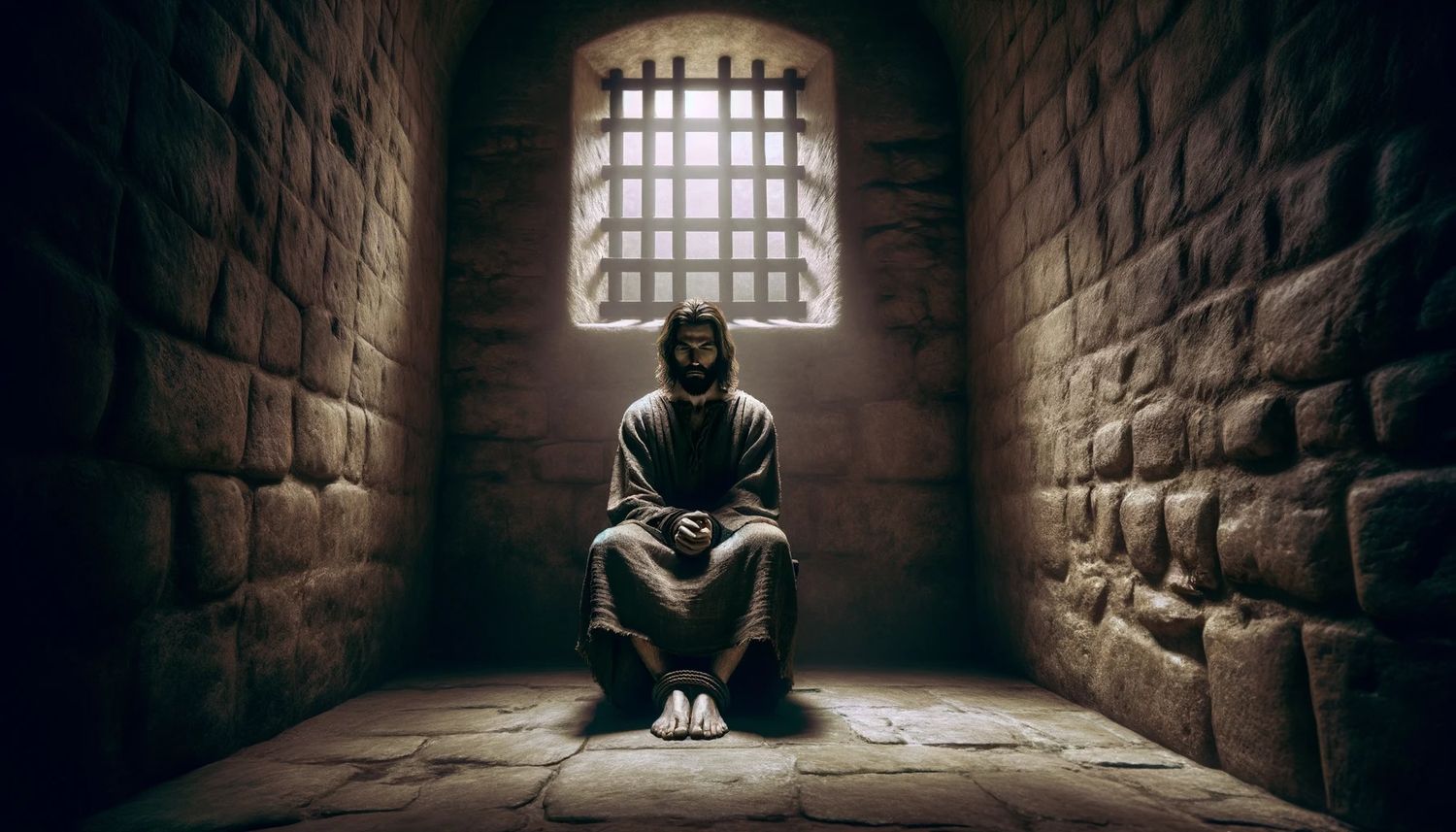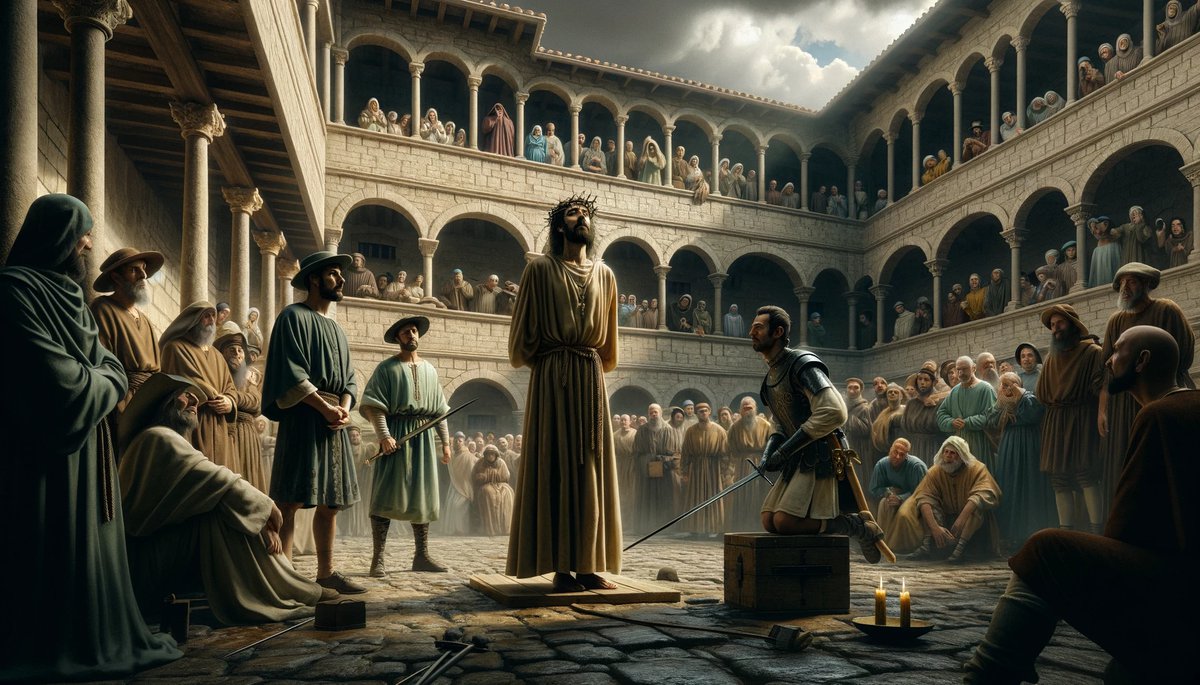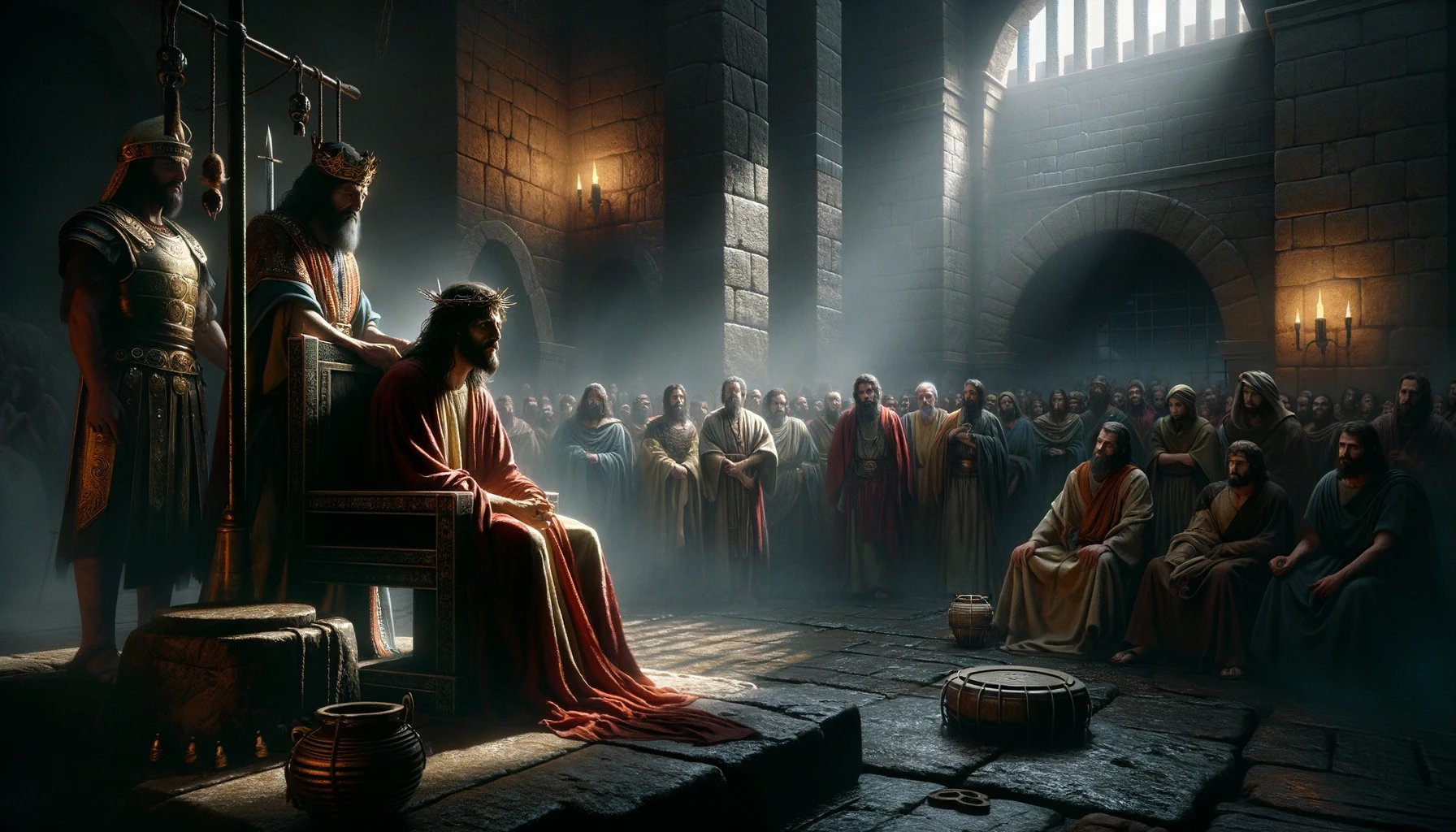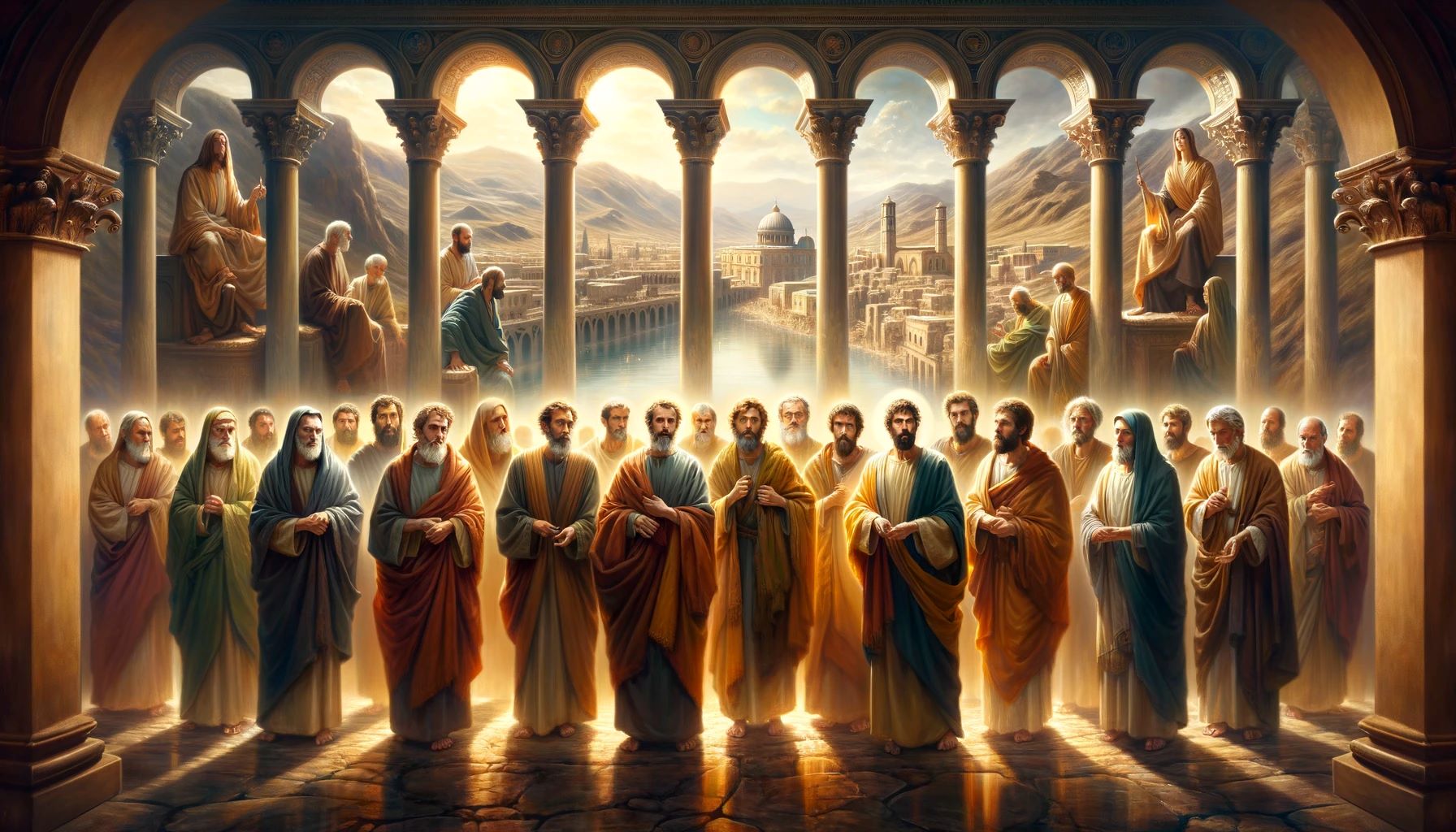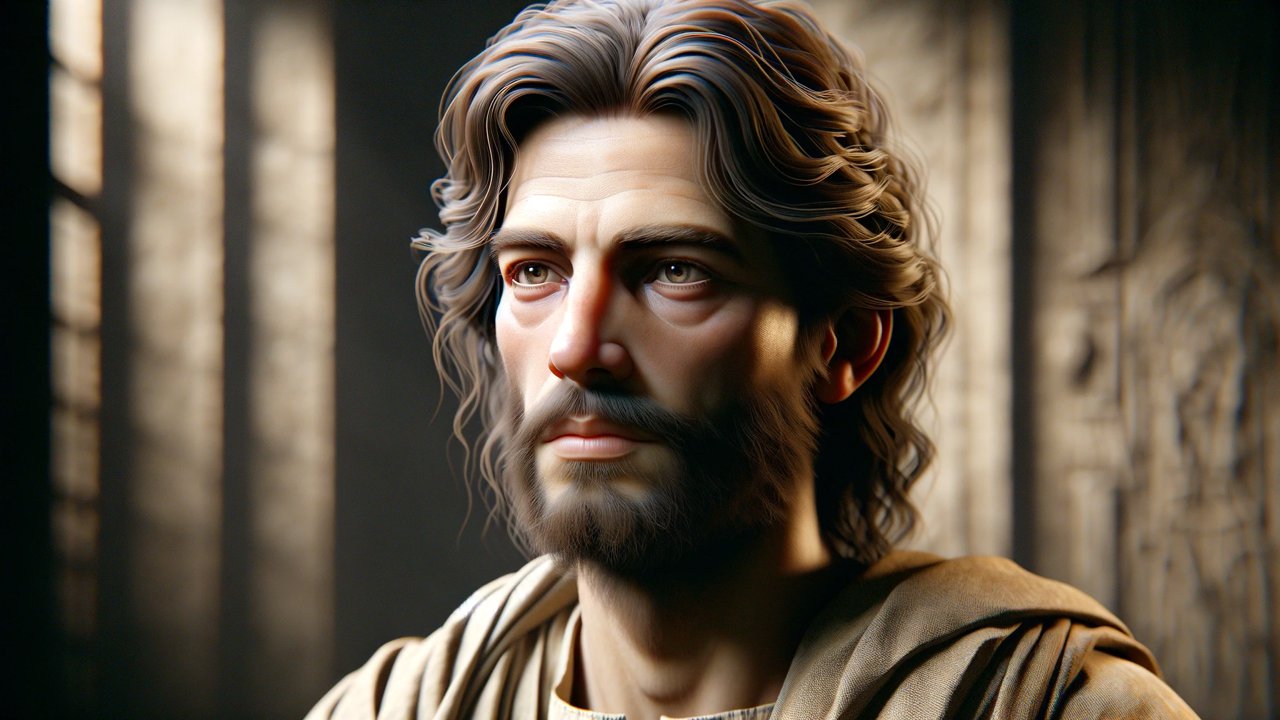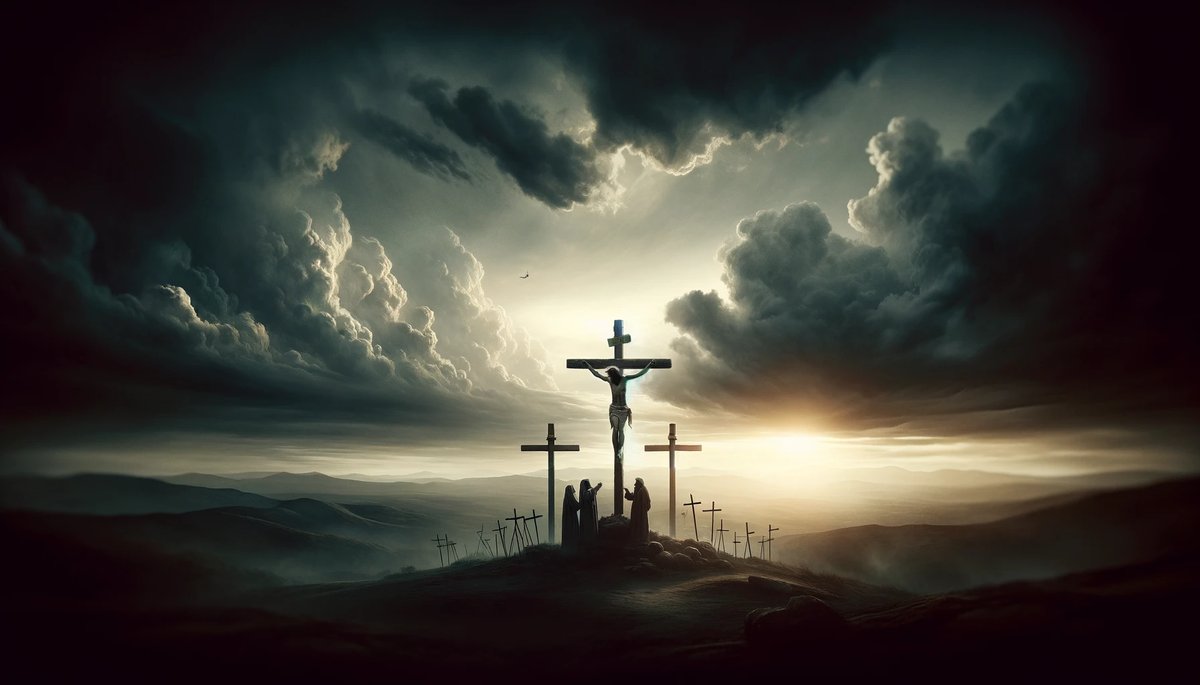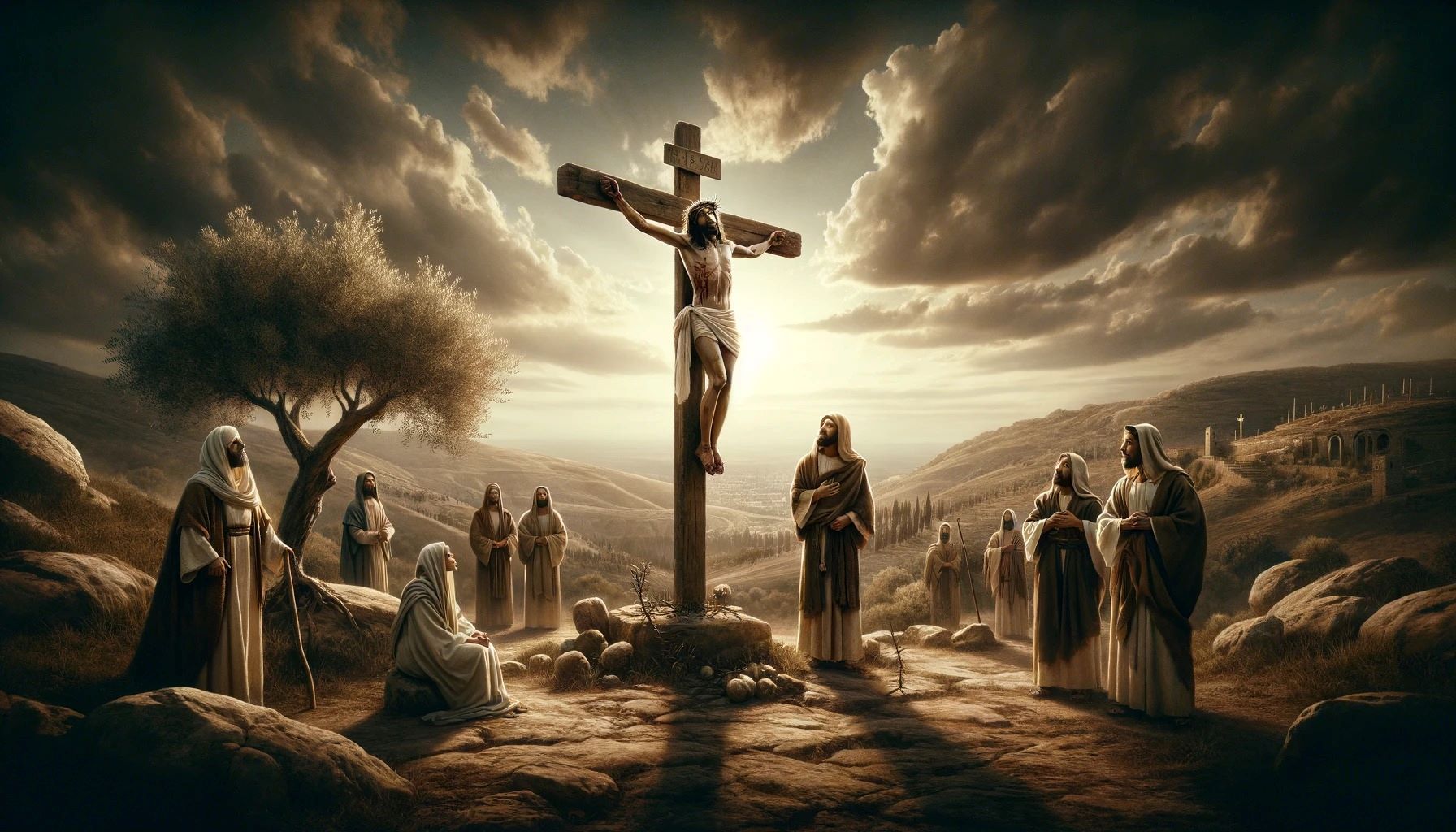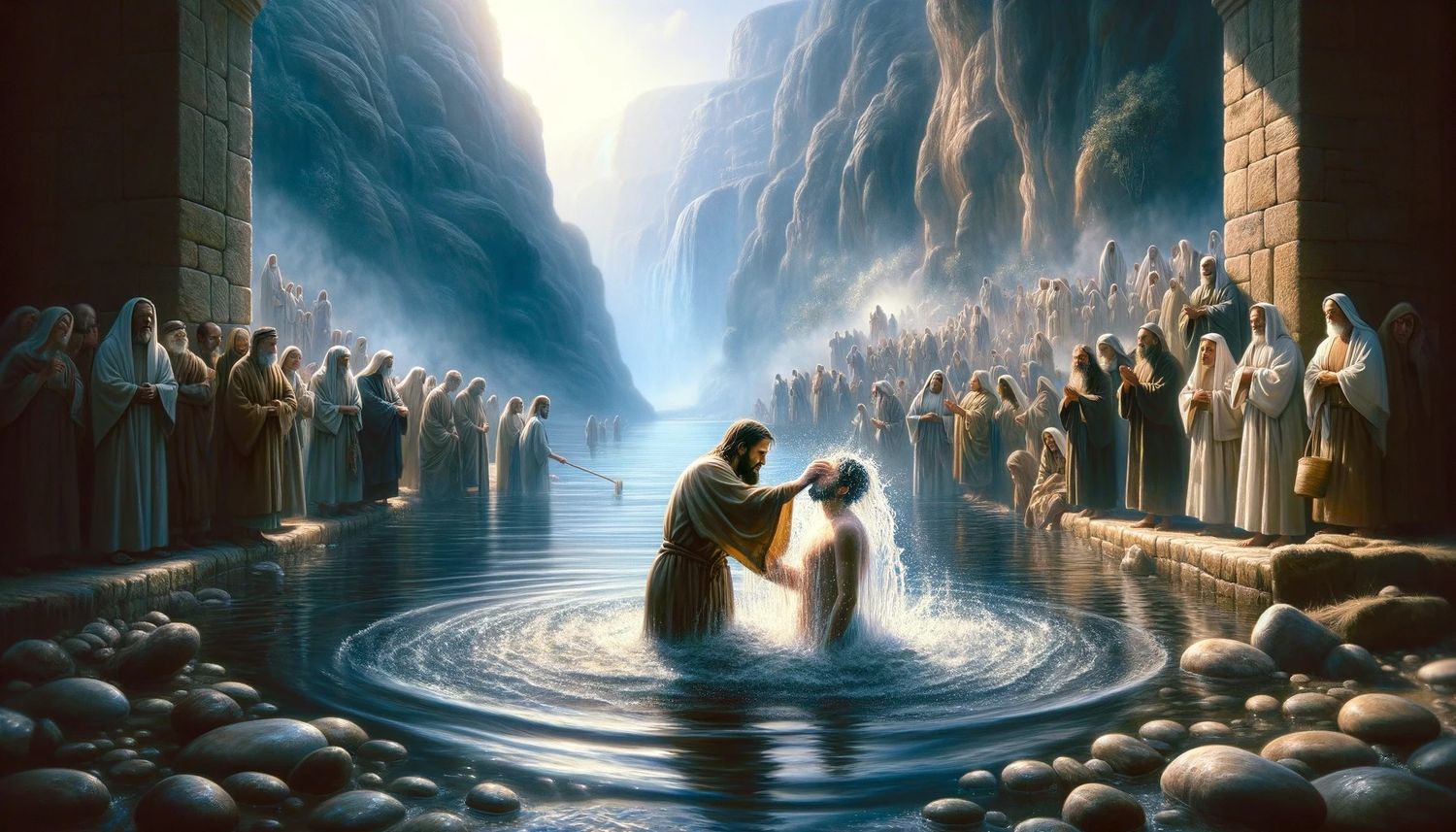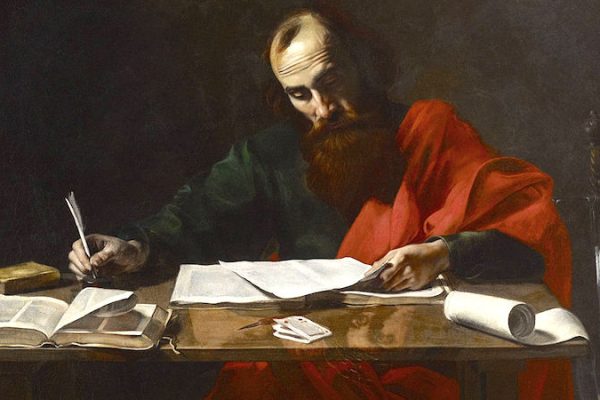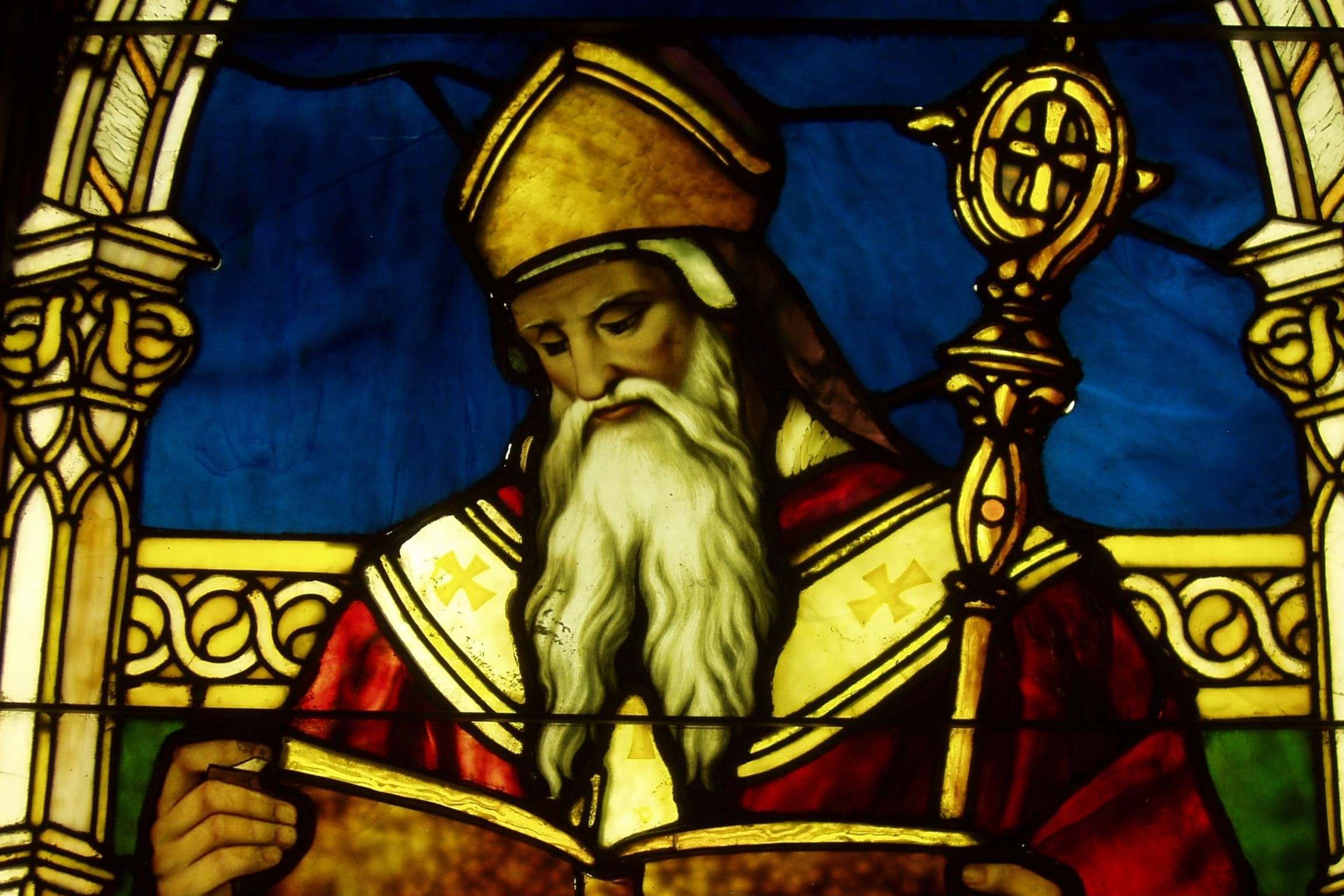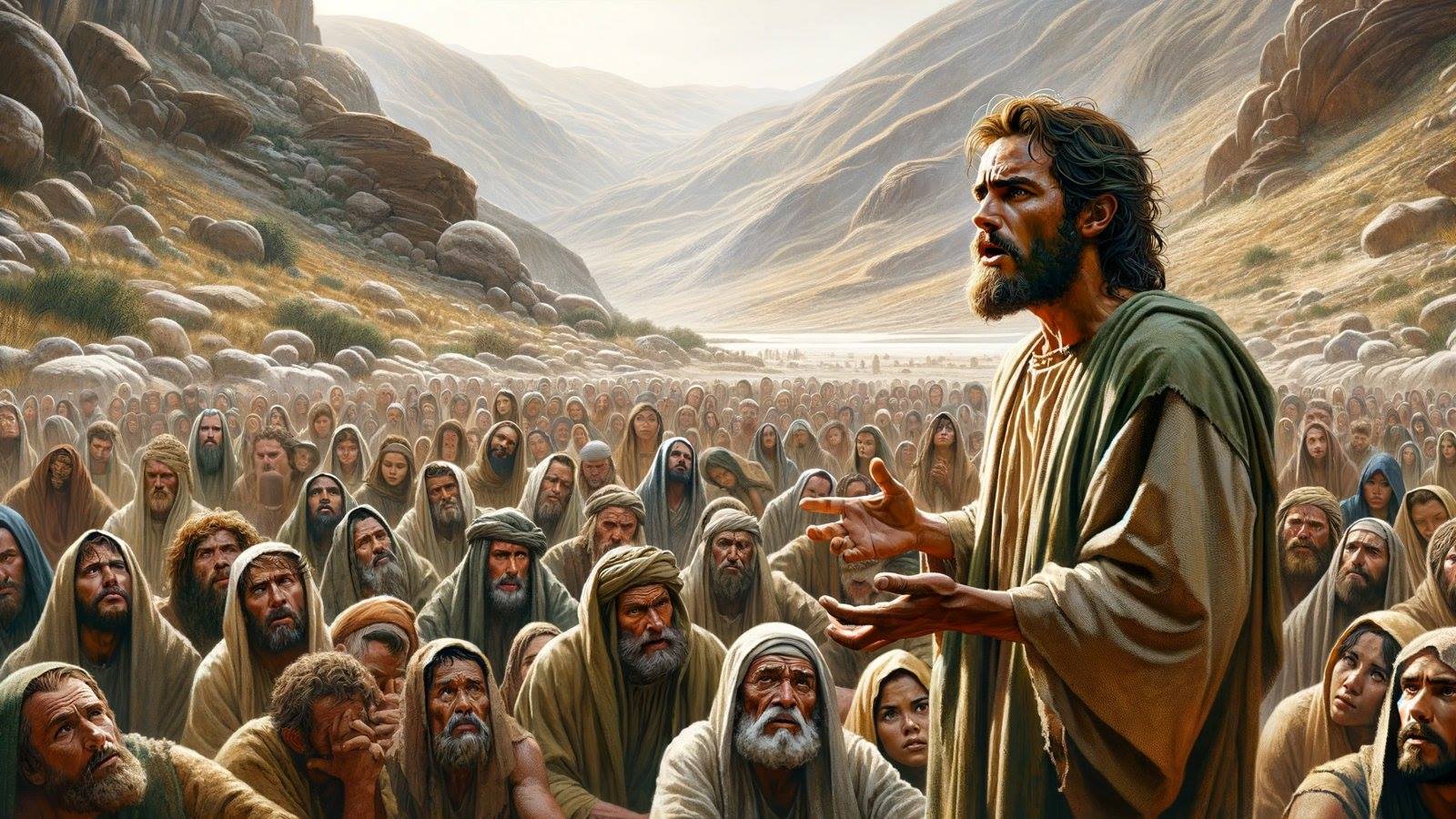Home>Theology and Spirituality>How Did The John The Baptist Die
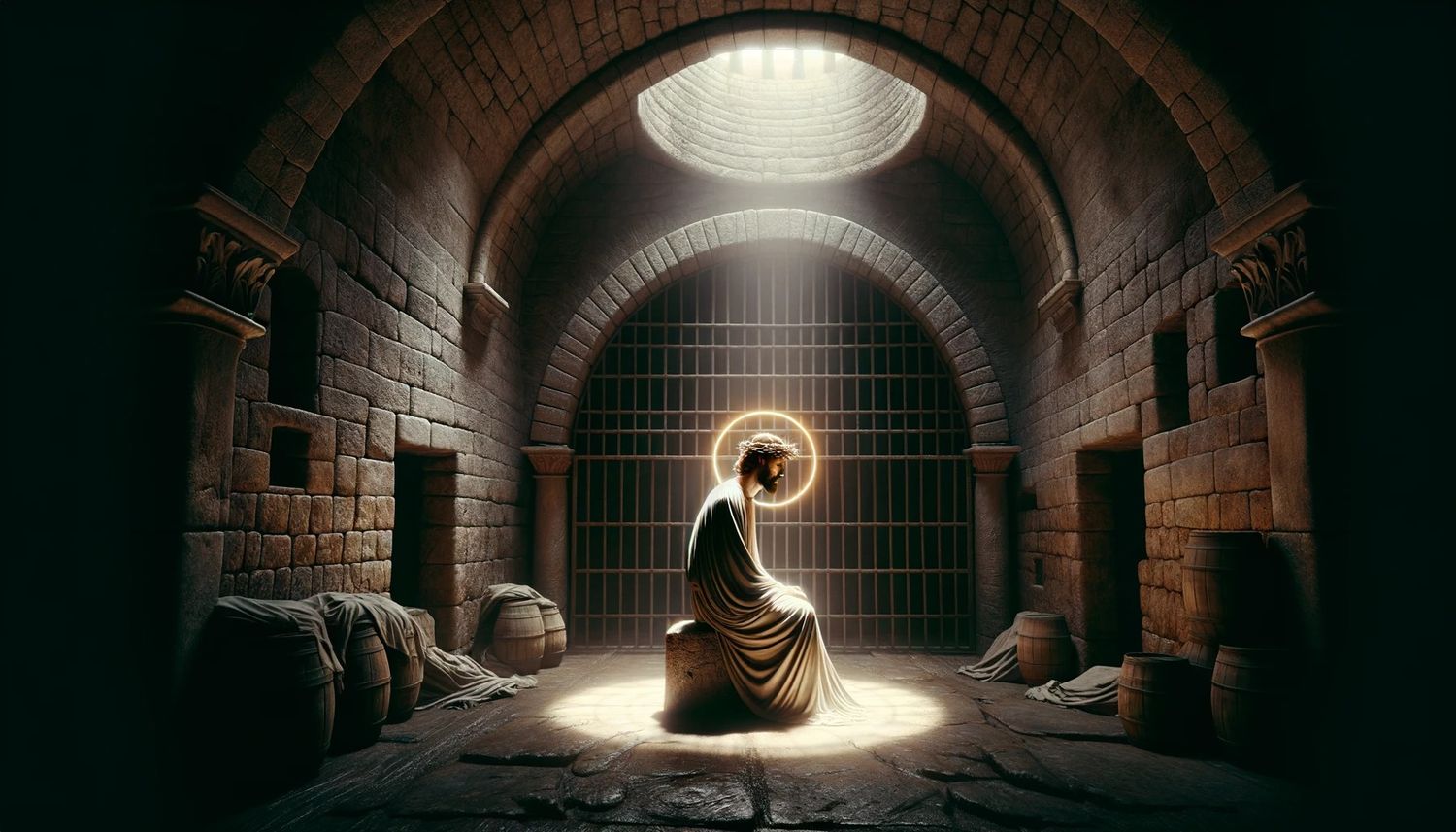

Theology and Spirituality
How Did The John The Baptist Die
Published: February 20, 2024
Jason DeRose, Managing Editor at Christian.net, uses his expertise in religion and journalism to deepen understanding of faith's societal impacts. His editorial leadership, coupled with a strong academic background, enriches the platform’s diverse content, earning him recognition in both journalism and religious circles.
Discover the circumstances of John the Baptist's death and its significance in theology and spirituality. Explore the historical and biblical accounts of his martyrdom.
(Many of the links in this article redirect to a specific reviewed product. Your purchase of these products through affiliate links helps to generate commission for Christian.net, at no extra cost. Learn more)
Table of Contents
Introduction
The story of John the Baptist is one that resonates deeply within the realms of theology and spirituality. His life, teachings, and ultimate sacrifice have left an indelible mark on the fabric of religious history. As we delve into the circumstances surrounding his imprisonment and subsequent execution, it is essential to understand the profound impact of his existence.
John the Baptist, often referred to as the precursor or forerunner, played a pivotal role in the narrative of Christianity. His significance is not only attributed to his familial connection with Jesus Christ but also to his unwavering commitment to his divine calling. His proclamation of repentance and baptism in the River Jordan drew multitudes seeking spiritual renewal and redemption.
The enigmatic figure of John the Baptist emerges as a beacon of moral rectitude and spiritual fervor. His austere lifestyle, clad in camel's hair with a leather belt around his waist, exemplified his renunciation of worldly comforts. His impassioned sermons echoed across the wilderness, stirring the hearts of those who sought spiritual awakening.
In the grand tapestry of biblical accounts, John the Baptist stands as a herald of transformation, heralding the imminent arrival of the Messiah. His resounding declaration, "Repent, for the kingdom of heaven is at hand," reverberated through the ages, transcending temporal boundaries and resonating with the eternal yearning for spiritual enlightenment.
As we embark on an exploration of the events leading to John the Baptist's demise, it is imperative to recognize the profound impact of his life and teachings. His unwavering commitment to righteousness and his unyielding devotion to his divine mission serve as a testament to the enduring power of faith and the resilience of the human spirit in the face of adversity.
Read more: How Did Saint John The Baptist Die
The Life of John the Baptist
John the Baptist, a central figure in the New Testament, embarked on a remarkable journey that intertwined with the unfolding narrative of Christianity. Born to elderly parents, Zechariah and Elizabeth, his miraculous conception heralded the dawn of a profound destiny. From his formative years, John was destined to play a pivotal role in the spiritual landscape of his era.
The wilderness became his sanctuary, and the simplicity of his attire belied the depth of his spiritual insight. Clad in camel's hair with a leather belt around his waist, John epitomized humility and detachment from worldly pursuits. His ascetic lifestyle mirrored his unwavering commitment to his divine calling, setting him apart as a beacon of righteousness in a world ensnared by moral ambiguity.
John's ministry was characterized by a resounding call to repentance and baptism, symbolizing a transformative rebirth. The River Jordan bore witness to the multitudes who sought spiritual purification through his baptismal rites. His impassioned sermons echoed across the wilderness, drawing people from all walks of life to heed his message of spiritual renewal.
The prophetic fervor that emanated from John's words captivated the hearts of his listeners, igniting a fervent anticipation of the imminent arrival of the Messiah. His proclamation, "Prepare the way of the Lord, make his paths straight," reverberated with a sense of urgency, heralding the dawn of a new era.
John's encounter with Jesus Christ, his cousin, marked a profound juncture in his ministry. As he baptized Jesus in the River Jordan, a transcendent moment unfolded, affirming the divine purpose that bound their destinies together. John's humility and recognition of Jesus as the Lamb of God exemplified his unwavering commitment to his role as the forerunner of the Messiah.
The life of John the Baptist stands as a testament to the transformative power of faith and the enduring impact of a life dedicated to divine purpose. His unwavering devotion to righteousness and his unyielding proclamation of truth left an indelible mark on the annals of religious history, inspiring generations to embrace the call to spiritual renewal and redemption.
The Imprisonment of John the Baptist
The narrative of John the Baptist's life takes a poignant turn as he confronts the stark reality of imprisonment. His unyielding commitment to truth and righteousness led to a collision with the forces of temporal power, culminating in his arrest and subsequent incarceration.
The catalyst for John's imprisonment stemmed from his unwavering stance against the moral transgressions of Herod Antipas, the tetrarch of Galilee and Perea. John fearlessly denounced Herod's unlawful union with Herodias, his brother's wife, citing the moral reprehensibility of their relationship. This bold condemnation of Herod's actions, rooted in the divine precepts of righteousness, incurred the wrath of Herodias, who harbored a deep-seated animosity towards John.
Herod's apprehension of John and subsequent imprisonment underscored the perilous intersection of spiritual conviction and political authority. Despite being confined within the confines of Herod's fortress, John's unwavering resolve remained unshaken. His incarceration became a crucible of steadfast faith and unyielding commitment to his divine calling.
The circumstances surrounding John's imprisonment reverberated across the region, eliciting a profound impact on the populace. The enigmatic figure of John the Baptist, revered for his prophetic fervor and unwavering dedication to truth, became a symbol of moral fortitude in the face of adversity. His imprisonment served as a testament to the inherent clash between temporal power and spiritual righteousness, illuminating the enduring struggle between the ephemeral dictates of authority and the immutable precepts of divine truth.
As John languished in captivity, his disciples conveyed the news of his predicament to Jesus Christ. This pivotal moment not only underscored the deep bond between the two figures but also served as a catalyst for Jesus' intensified ministry. The shadow of John's imprisonment cast a profound influence on the unfolding narrative of Christianity, heralding a transformative juncture that would culminate in the ultimate sacrifice of the herald of repentance.
The imprisonment of John the Baptist stands as a testament to the enduring power of faith in the face of adversity. His unwavering commitment to truth and righteousness, even in the throes of captivity, exemplifies the indomitable spirit of a figure whose legacy transcends the confines of temporal constraints.
The Execution of John the Baptist
The harrowing saga of John the Baptist reaches its tragic climax with the chilling account of his execution. Imprisoned within the confines of Herod Antipas' fortress, John's unwavering commitment to truth and righteousness remained unyielding, despite the looming specter of impending doom.
The catalyst for John's execution stemmed from the treacherous machinations of Herodias, who harbored an implacable vendetta against the outspoken prophet. Herodias seized upon an opportune moment during Herod's birthday banquet, where her daughter, Salome, captivated the assembly with her mesmerizing dance. Herod, in a moment of ill-fated indulgence, rashly promised to grant her any request, up to half of his kingdom.
Exploiting this reckless vow, Salome, at the behest of her vengeful mother, demanded the head of John the Baptist on a platter. Herod, ensnared by his imprudent oath and the machinations of Herodias, reluctantly acquiesced to the gruesome demand. The chilling decree sealed John's fate, plunging the realm into mourning and heralding the ignominious demise of the herald of repentance.
The executioner's blade severed the earthly tenure of John the Baptist, silencing the prophetic voice that had resounded across the wilderness. The martyrdom of John reverberated with profound implications, casting a stark light on the collision between spiritual rectitude and the capricious whims of temporal authority. The blood-stained platter bore witness to the unyielding commitment of a figure whose unwavering devotion to truth transcended the confines of mortal existence.
The execution of John the Baptist stands as a testament to the enduring power of faith in the face of persecution. His martyrdom, a poignant testament to the clash between righteousness and temporal authority, resonates across the annals of religious history, inspiring generations to embrace the mantle of unwavering conviction in the pursuit of divine truth.
The Legacy of John the Baptist
The legacy of John the Baptist transcends the confines of temporal existence, permeating the annals of religious history with an enduring resonance that continues to inspire and captivate the hearts of countless individuals. His unwavering commitment to truth and righteousness, coupled with his resounding call to repentance, has left an indelible imprint on the fabric of spirituality.
John's legacy is intricately woven into the narrative of Christianity, serving as a poignant reminder of the transformative power of faith and the enduring impact of a life dedicated to divine purpose. His proclamation of repentance and baptism in the River Jordan reverberates through the corridors of time, echoing a timeless call to spiritual renewal and redemption.
The profound encounter between John the Baptist and Jesus Christ, his cousin, marked a pivotal juncture in the tapestry of religious history. As he baptized Jesus in the River Jordan, a transcendent moment unfolded, affirming the divine purpose that bound their destinies together. John's humility and recognition of Jesus as the Lamb of God exemplified his unwavering commitment to his role as the forerunner of the Messiah.
The martyrdom of John the Baptist stands as a testament to the enduring power of faith in the face of persecution. His unwavering devotion to truth and righteousness, even in the throes of captivity, exemplifies the indomitable spirit of a figure whose legacy transcends the confines of temporal constraints.
The enduring legacy of John the Baptist serves as a beacon of moral rectitude and spiritual fervor, inspiring generations to embrace the call to spiritual renewal and redemption. His life and teachings continue to resonate with a timeless relevance, beckoning humanity to heed the resounding call to repentance and embrace the transformative power of faith.
In the grand tapestry of religious history, the legacy of John the Baptist endures as a testament to the enduring power of faith, the resilience of the human spirit, and the unwavering commitment to divine truth. His life, teachings, and ultimate sacrifice stand as a testament to the enduring impact of a figure whose legacy transcends the confines of mortal existence, resonating with the eternal yearning for spiritual enlightenment.
